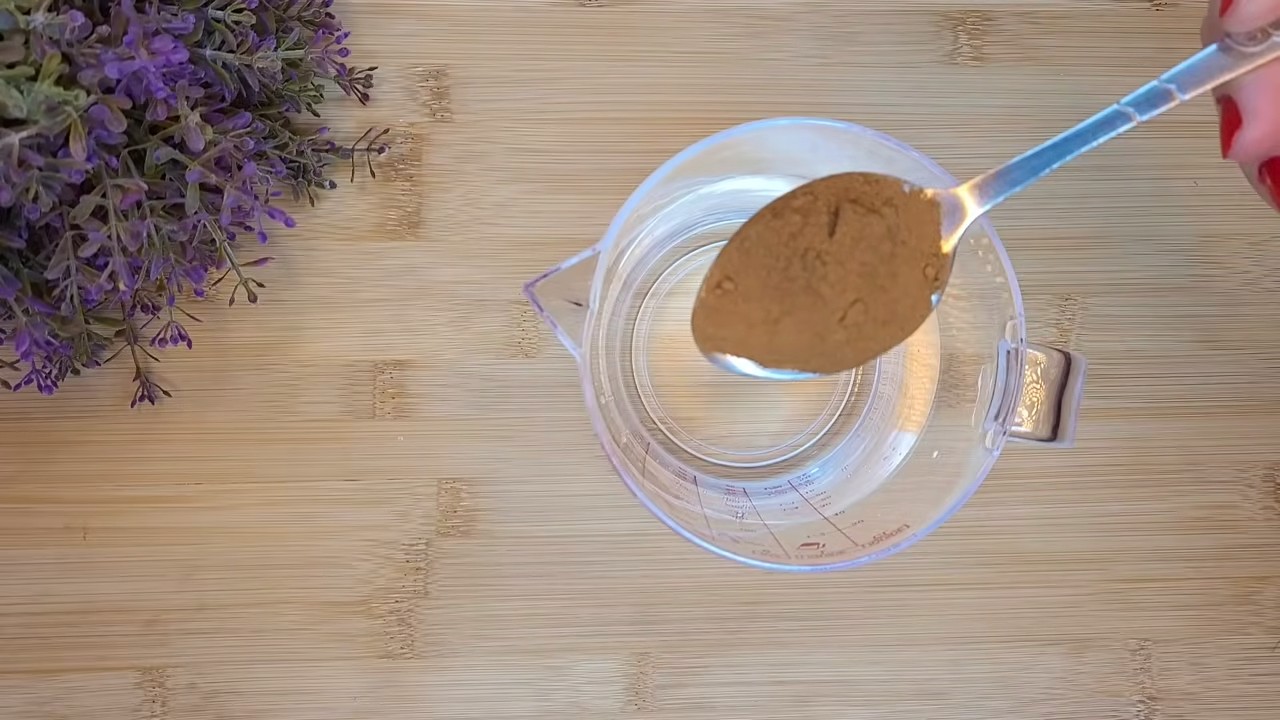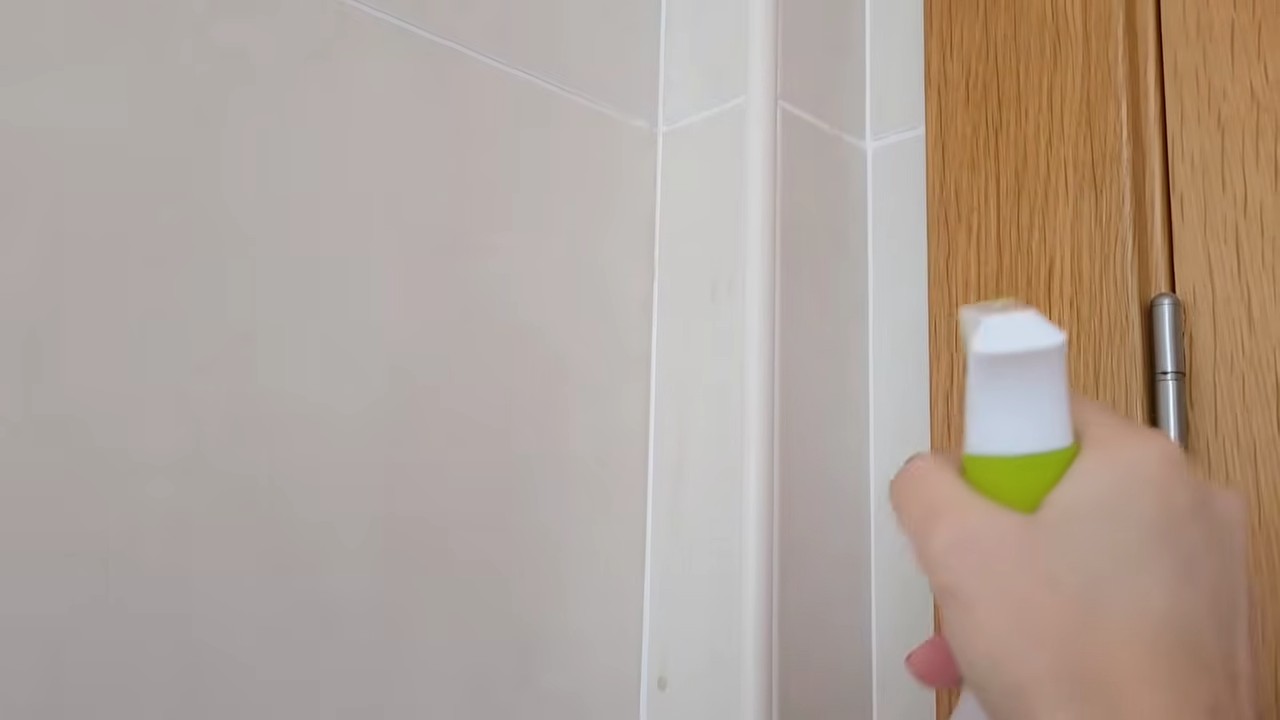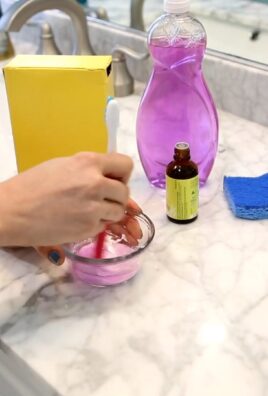Cinnamon life hacks 鈥?who knew such a simple spice could be so incredibly versatile? I’m always on the lookout for clever ways to simplify my life, and I stumbled upon a treasure trove of uses for cinnamon that I just had to share with you. Forget those expensive, single-use products cluttering your cupboards! We’re diving into the world of DIY with this aromatic spice, and I promise, you’ll be amazed.
Cinnamon’s history stretches back centuries, prized not only for its warm, comforting flavor but also for its medicinal properties. Ancient Egyptians used it in embalming, while medieval Europeans considered it a symbol of wealth and luxury. Today, we can harness that same power and fragrance in our homes and gardens, without breaking the bank.
Why do you need these cinnamon life hacks? Because they’re effective, natural, and often cheaper than conventional solutions! Whether you’re battling pesky ants in your kitchen, looking for a natural air freshener, or trying to give your seedlings a boost, cinnamon has got your back. I’m excited to show you how to unlock the full potential of this amazing spice and make your life a little easier, one sprinkle at a time. Let’s get started!

Cinnamon Life Hacks: Spice Up Your Life (Literally!)
Hey there, fellow DIY enthusiasts! I’m so excited to share some of my favorite cinnamon life hacks with you. Cinnamon isn’t just for baking delicious treats; it’s a surprisingly versatile spice that can solve a bunch of everyday problems. From freshening up your home to boosting your garden, get ready to be amazed by the power of cinnamon!
Cinnamon Air Freshener: Naturally Scent Your Home
Tired of artificial air fresheners filled with chemicals? Me too! This cinnamon air freshener is all-natural, smells amazing, and is super easy to make.
What you’ll need:
* A small saucepan
* Water
* Cinnamon sticks (3-4)
* Optional: Orange peels, apple slices, cloves, star anise
Step-by-step instructions:
1. Gather your ingredients: Make sure you have your cinnamon sticks ready. I like to use the whole sticks for a stronger scent, but you can also use ground cinnamon if that’s all you have on hand (about 1-2 teaspoons). If you’re adding other scents, grab your orange peels, apple slices, cloves, or star anise. These will complement the cinnamon beautifully.
2. Combine ingredients in the saucepan: Pour about 2 cups of water into your saucepan. Add the cinnamon sticks (or ground cinnamon) and any other spices or fruit you’re using.
3. Simmer on low heat: Place the saucepan on the stove and bring it to a simmer over low heat. You don’t want it to boil, just gently simmer.
4. Let it simmer for a few hours: Allow the mixture to simmer for 2-3 hours, or even longer if you want a stronger scent. Keep an eye on the water level and add more as needed to prevent the pan from drying out.
5. Enjoy the aroma: As the mixture simmers, your home will be filled with a warm, inviting cinnamon scent. You can leave the saucepan on the stove for as long as you like, just make sure to keep an eye on it and add water as needed.
6. Alternative: Cinnamon in the oven: If you don’t want to leave the stove on, you can also bake the mixture in the oven at a very low temperature (around 200掳F or 93掳C) for a similar effect. Just be extra careful to monitor the water level.
Cinnamon Bug Repellent: Keep Pests Away Naturally
Did you know that cinnamon can repel ants, mosquitoes, and other pesky insects? It’s a natural and effective alternative to chemical-laden bug sprays.
What you’ll need:
* Ground cinnamon
* Optional: Cinnamon essential oil
* Small containers or cotton balls
Step-by-step instructions:
1. Identify problem areas: Figure out where the bugs are entering your home or where they’re most active. Common areas include windowsills, doorways, and cracks in the walls.
2. Sprinkle ground cinnamon: Sprinkle a line of ground cinnamon along the identified areas. The strong scent of cinnamon will deter the bugs from crossing the line.
3. Use cinnamon essential oil (optional): For extra bug-repelling power, you can add a few drops of cinnamon essential oil to cotton balls and place them near the problem areas.
4. Replace regularly: The cinnamon will lose its potency over time, so you’ll need to replace it every few days or weeks, depending on the severity of the bug problem.
5. Cinnamon spray: Mix cinnamon oil with water in a spray bottle. Shake well and spray around areas where you see bugs. Be careful when spraying on plants, as high concentrations of cinnamon oil can be harmful.
6. Ants be gone: For ants, find their trail and sprinkle cinnamon directly on it. This disrupts their scent trail and discourages them from returning.
Cinnamon for Plant Health: A Gardener’s Secret Weapon
Cinnamon isn’t just for the kitchen; it’s also a fantastic tool for gardeners! It can help prevent fungal diseases, promote root growth, and even deter pests.
What you’ll need:
* Ground cinnamon
* Water
* Spray bottle (optional)
Step-by-step instructions:
1. Prevent damping off: Damping off is a fungal disease that affects seedlings, causing them to rot and die. To prevent this, sprinkle a light layer of ground cinnamon on the soil surface before planting your seeds. The cinnamon will act as a natural fungicide.
2. Rooting hormone: Cinnamon can also be used as a natural rooting hormone. Before planting cuttings, dip the cut end in ground cinnamon. This will help stimulate root growth and prevent fungal infections.
3. Treat fungal infections: If your plants are already suffering from a fungal infection, you can make a cinnamon spray to treat them. Mix 1 teaspoon of ground cinnamon with 2 cups of warm water. Let the mixture sit for a few hours, then strain it through a coffee filter or cheesecloth. Pour the strained liquid into a spray bottle and spray the affected areas of the plant.
4. Pest deterrent: As mentioned earlier, cinnamon can also deter pests. Sprinkle ground cinnamon around the base of your plants to keep away ants, slugs, and other unwanted visitors.
5. Cinnamon tea for plants: Brew a weak cinnamon tea (using a cinnamon stick in hot water) and let it cool completely. Use this tea to water your plants. The cinnamon can help prevent fungal diseases and promote healthy growth.
Cinnamon for Skin: A Natural Exfoliant and Acne Fighter
Cinnamon has antibacterial and anti-inflammatory properties that can benefit your skin. It can be used as a natural exfoliant, acne fighter, and even to plump up your lips! Always do a patch test before applying cinnamon to your face, as it can be irritating for some people.
What you’ll need:
* Ground cinnamon
* Honey or olive oil
* Optional: Sugar or oatmeal
Step-by-step instructions:
1. Cinnamon face mask: Mix 1 teaspoon of ground cinnamon with 2 teaspoons of honey or olive oil. Apply the mixture to your face, avoiding the eye area. Leave it on for 10-15 minutes, then rinse with warm water. This mask can help reduce inflammation, fight acne, and brighten your complexion.
2. Cinnamon lip plumper: Mix a tiny pinch of ground cinnamon with a small amount of lip balm or olive oil. Apply the mixture to your lips and leave it on for a few minutes. The cinnamon will stimulate blood flow to your lips, making them appear plumper. Be careful not to use too much cinnamon, as it can be irritating.
3. Cinnamon scrub: Mix 1 teaspoon of ground cinnamon with 1 tablespoon of sugar or oatmeal and 1 tablespoon of olive oil or honey. Gently massage the mixture onto your skin in circular motions. Rinse with warm water. This scrub will exfoliate your skin, removing dead skin cells and leaving it feeling smooth and refreshed.
4. Spot treatment for acne: Mix a small amount of ground cinnamon with a few drops of water to form a paste. Apply the paste directly to pimples and leave it on overnight. The cinnamon will help reduce inflammation and kill bacteria.
Cinnamon for Cleaning: A Natural Disinfectant
Cinnamon’s antibacterial properties make it a great natural disinfectant for cleaning your home.
What you’ll need:
* Cinnamon essential oil
* Water
* Spray bottle
* Optional: Vinegar
Step-by-step instructions:
1. Cinnamon cleaning spray: Mix 10-15 drops of cinnamon essential oil with 1 cup of water in a spray bottle. You can also add 1/4 cup of vinegar for extra cleaning power.
2. Shake well: Shake the bottle well to combine the ingredients.
3. Spray and wipe: Spray the mixture onto surfaces you want to clean, such as countertops, sinks, and bathroom fixtures. Let it sit for a few minutes, then wipe clean with a damp cloth.
4. Freshen your microwave: Place a bowl of water with a cinnamon stick in your microwave and heat for a few minutes. This will help loosen food particles and freshen the microwave.
5. Deodorize your garbage disposal: Sprinkle ground cinnamon down your garbage disposal and run it with cold water for a few seconds. This will help eliminate odors.
Cinnamon for Crafts: Adding Scent and Texture
Cinnamon can add a unique touch to your craft projects, both in terms of scent and texture.
What you’ll need:
* Cinnamon sticks
* Ground cinnamon
* Glue
* Various craft supplies (e.g., pine cones, ribbon, fabric)
Step-by-step instructions:
1. Cinnamon stick decorations: Glue cinnamon sticks to pine cones, wreaths, or other

Conclusion
So, there you have it! These cinnamon life hacks are more than just clever tricks; they’re game-changers for your home, your health, and even your garden. From banishing unwanted pests to creating a warm and inviting aroma, cinnamon proves to be a versatile and surprisingly powerful tool.
Why is this a must-try? Because it’s effective, affordable, and natural. Forget harsh chemicals and expensive solutions. Cinnamon offers a gentler, safer alternative that’s readily available in most kitchens. Imagine a home free from ants, moths, and other unwelcome guests, all thanks to the simple power of cinnamon. Think of the money you’ll save on commercial air fresheners by creating your own delightful cinnamon-infused potpourri. And consider the boost your plants will get from a natural fungicide that’s both effective and environmentally friendly.
But the possibilities don’t stop there. Feel free to experiment and adapt these hacks to suit your specific needs and preferences.
* **Cinnamon-Infused Cleaning:** Add a teaspoon of cinnamon powder to your all-purpose cleaner for a fresh, spicy scent that lingers long after you’ve finished cleaning.
* **Cinnamon Sugar Scrub:** Combine cinnamon with sugar and olive oil for a gentle exfoliating scrub that leaves your skin feeling soft and smelling divine.
* **Cinnamon Tea for Colds:** Brew a cup of cinnamon tea with honey and lemon to soothe a sore throat and ease cold symptoms.
* **Cinnamon in Baking:** Don’t limit yourself to just cinnamon rolls! Add a pinch of cinnamon to your coffee cake, muffins, or even savory dishes like chili for a warm, complex flavor.
* **Cinnamon Ornaments:** Create festive cinnamon ornaments for the holidays by mixing cinnamon powder with applesauce and glue, then baking them until hardened.
These are just a few ideas to get you started. The beauty of these cinnamon life hacks lies in their adaptability. Don’t be afraid to get creative and discover new ways to harness the power of this amazing spice.
We’re confident that once you try these cinnamon life hacks, you’ll be amazed by the results. They’re simple, effective, and offer a natural alternative to many common household problems. So, go ahead, give them a try! We encourage you to experiment, share your own variations, and let us know how these hacks work for you. Share your experiences in the comments below 鈥?we’d love to hear your success stories and any new tips you discover along the way. Let’s unlock the full potential of cinnamon together!
Frequently Asked Questions (FAQ)
Is cinnamon safe to use around pets?
Generally, cinnamon is considered safe for pets in small quantities. However, large amounts can be toxic, especially to cats and small dogs. Cinnamon contains coumarin, which can cause liver damage in sensitive animals. If your pet ingests a significant amount of cinnamon, it’s best to consult with your veterinarian. When using cinnamon as a pest deterrent, ensure that your pets cannot directly access large quantities of the spice. For example, sprinkle cinnamon in areas they can’t reach or use it in a diffuser where the scent is present but the powder isn’t accessible. Always monitor your pet for any adverse reactions, such as vomiting, diarrhea, or lethargy.
What type of cinnamon is best for these life hacks?
While both Ceylon cinnamon (also known as “true cinnamon”) and Cassia cinnamon (the more common variety) can be used for these life hacks, Cassia cinnamon is generally preferred due to its stronger flavor and aroma, making it more effective for pest control and scenting purposes. Ceylon cinnamon is milder and more expensive, so it’s better suited for culinary uses where its delicate flavor can be appreciated. For most of these hacks, the readily available and affordable Cassia cinnamon will work just fine.
How often should I reapply cinnamon for pest control?
The frequency of reapplication depends on the specific application and the severity of the pest problem. For ants, reapply cinnamon powder every few days, especially after rain or cleaning, until you no longer see them. For moths, replace cinnamon sticks or sachets every few months to maintain their effectiveness. In the garden, reapply cinnamon powder after watering or rain to ensure it continues to protect your plants from fungal diseases. Regularly check the areas where you’ve applied cinnamon and reapply as needed to maintain its effectiveness.
Can I use cinnamon essential oil instead of cinnamon powder?
Yes, cinnamon essential oil can be used as an alternative to cinnamon powder in many of these life hacks. However, it’s important to use it with caution, as essential oils are highly concentrated and can be irritating to the skin and mucous membranes. When using cinnamon essential oil, dilute it properly with a carrier oil, such as coconut oil or olive oil, before applying it to your skin or using it in a diffuser. For pest control, you can add a few drops of cinnamon essential oil to water and spray it around areas where pests are present. Always test a small area first to ensure that the oil doesn’t damage surfaces.
Will cinnamon stain my furniture or carpets?
Cinnamon powder can potentially stain light-colored furniture or carpets, especially if it gets wet. To prevent staining, avoid applying cinnamon powder directly to delicate surfaces. Instead, use it in sachets, diffusers, or sprinkle it on a piece of cloth or paper towel. If you do accidentally spill cinnamon powder on a surface, clean it up immediately with a vacuum cleaner or a damp cloth. For stubborn stains, you can try using a mild detergent or stain remover. Always test any cleaning solution on a small, inconspicuous area first to ensure that it doesn’t damage the surface.
How long does the cinnamon scent last when used as an air freshener?
The longevity of the cinnamon scent depends on the method used and the environment. When simmering cinnamon sticks on the stovetop, the scent can last for several hours. In a diffuser, the scent can last for a few days, depending on the size of the diffuser and the amount of cinnamon oil used. When using cinnamon powder in sachets or potpourri, the scent can last for several weeks or even months, especially if you refresh the cinnamon powder periodically. To prolong the scent, store cinnamon sticks and powder in airtight containers when not in use.
Is cinnamon effective against all types of pests?
While cinnamon is effective against many common household pests, such as ants, moths, and mosquitoes, it may not be effective against all types of pests. For example, it may not be as effective against rodents or cockroaches. In some cases, you may need to use a combination of different pest control methods to effectively eliminate pests from your home. If you have a severe pest infestation, it’s best to consult with a professional pest control service.
Can I use cinnamon to treat plant diseases other than fungal infections?
Cinnamon is primarily effective against fungal diseases in plants, such as damping-off, powdery mildew, and root rot. While it may have some limited antibacterial properties, it’s not as effective against bacterial infections or viral diseases. If your plant is suffering from a bacterial or viral infection, you’ll need to use a different treatment method, such as a copper-based fungicide or a systemic insecticide. Always identify the specific disease affecting your plant before applying any treatment.



Leave a Comment